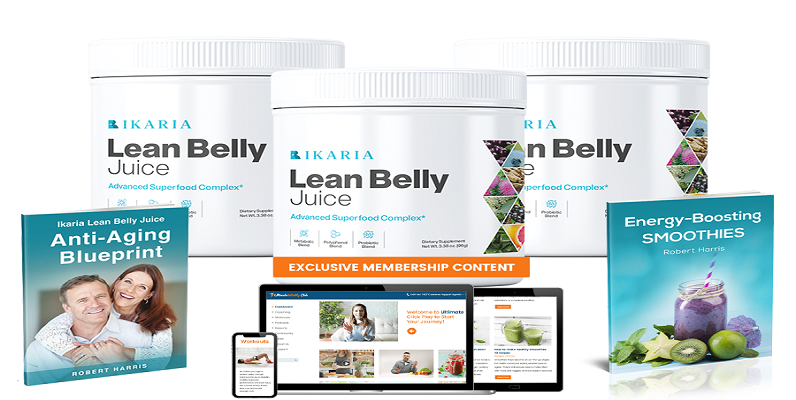5 Steps to Improve Your Fitness
Optimizing fitness should be one of the main focuses of every individual’s life. Doing so can reduce your risk of chronic disease, improve sleep habits and boost confidence levels.
However, sticking with your program requires dedication. Here are five steps that may make that easier: 1. Frequency
1. Get Moving
If the thought of running a marathon or bench-pressing makes you want to give up fitness altogether, don’t! Moving more is one of the best things you can do for your health. If you aren’t currently active, start slowly and build on what you already have by gradually increasing how often and for how long you exercise each week.
Applying the FITT principle, you can make small changes that will have big benefits for your health and well-being. For example, instead of driving to work, try walking, rollerblading or biking instead; or park further away if necessary if driving is essential. Also visit restrooms on other floors of the building instead of only using one closest to your desk; set mini goals such as jogging around the block or doing circuit exercises in your living room as motivation if needed – exercise with friends or hire a trainer if needed for extra motivation.
![]()
Movement makes life easier, especially as your endurance and strength increase with continued exercise. Your body will adapt quickly as a result, providing more energy to enjoy life’s pleasures!
Focus on moving mindfully for maximum benefits. Pay close attention to your posture, hip dominance, weight distribution, eye gaze and breathing while you move, paying particular attention to posture, hip dominance, weight distribution, eye gaze and breathing while moving. As soon as you pay more attention during movement you will see how dramatically better they are; your movements may even become more efficient leading to improved balance and stability, reduced stress levels and potential pain relief.
2. Eat Right
No matter how hard you train, without proper nutrition your fitness levels won’t reach their full potential. Nutritious foods provide vitamins, minerals and antioxidants that nourish every cell of the body to fuel strength and endurance – just like filling your sports car up with cheap gas will not deliver optimal performance or last as long!
At meals and snacks, it’s essential to eat nutritious foods including whole grains, low-fat dairy and plenty of fruits and vegetables. Protein-rich foods are key for building and maintaining muscle. Incorporating nuts, seeds and olive oil as healthy fat sources also can be beneficial.
An hour to four hours prior to working out is often the ideal time for eating something light like fruit or another small snack, like nuts.
Be sure to consume sufficient fluids prior, during, and post exercise – this helps maintain proper hydration by replenishing any sweat-outed fluids.
Transitioning to a healthier diet and fitness regime can be daunting, particularly at first. To stay motivated, reminding yourself of all of its benefits can help keep motivation high: extra energy to play with kids or grandkids, better sleep quality and reduced risk of disease such as COVID-19 are just a few benefits from becoming more active – write them all down so you don’t lose focus of your fitness goals!
3. Get Enough Sleep
Sleep is an integral component of leading a healthy lifestyle and meeting fitness goals. Research indicates that those who get enough rest tend to exercise more frequently and at higher intensity levels than those who don’t rest well, yet striking the balance between workouts and rest can be difficult; timing of workouts might make it more difficult to sleep at night while other obligations and family duties may preclude as much physical activity in the mornings.
Training while fatigued can result in injuries or subpar performances due to reduced concentration, form and technique issues and decreased motivation and impulse control issues, which is counterproductive to your fitness goals.
At the core of it all lies sleep: its importance cannot be overstated in terms of fitness efforts. Adherence to a consistent wake-rest cycle and getting at least 7-9 hours of high-quality restorative rest is vital if you wish to see results from your fitness efforts.

If you’re having difficulty sleeping, try cutting back on caffeine (such as coffee, tea and caffeinated energy drinks) after noon and limiting alcohol and large meals close to bedtime. Keep a consistent bedtime each night and create an inviting place for sleep in your bedroom by keeping it dark, quiet and cool; adding relaxing activities such as reading a book before bed or taking a warm bath can also help make drifting off easier. Also limit napping sessions to 15 minutes or less in length during the day as long naps at night can disrupt sleep cycles and delay needed recovery from recovery from fatigue caused by exhaustion from work!
4. Stay Hydrated
Water comprises over 60% of your body and serves to regulate temperature, transport nutrients and maintain electrolyte balance. Therefore, it is crucial that you consume sufficient fluids each day, especially when exercising; one rule of thumb would be “If you sweat, drink.” However, individual needs will differ based on intensity levels of exercise and personal hydration needs will vary between individuals.
Dehydration is one of the main contributors to lower performance, with just 2% loss of fluids leading to 10% decreased aerobic efficiency. Stay hydrated to protect your health.
Starting an hour before exercise, take four to six large gulps of water in one hour. Continue sipping small amounts during your workout as needed – carrying a water bottle can help monitor how much fluids you drink! You can also hydrate by eating foods high in water content like berries, melons and watermelons for easy hydration purposes.
After your workout, drink water to replenish any fluids lost through sweat and aid recovery. It is recommended that you consume 24 ounces of water for every pound of fluid lost while exercising.
Sports drinks provide calories, potassium and other electrolytes lost through exercise. But you can get all these same benefits by switching your primary beverage to water instead of sports drinks; use only when necessary (e.g. during long runs). To gain more knowledge on improving fitness through nutrition and hydration strategies, speak with a registered dietitian or sports nutrition specialist.
5. Stay Committed
Many people struggle with maintaining a new fitness regime after initial enthusiasm has worn off, so keeping your goals in mind can help overcome this difficulty and keep you on the path to fitness. Reminding yourself why exercising helps improve your mood, keeps your body healthy, or enhances work performance can serve as motivation to stick with the plan and stay committed to its implementation.
Make exercise fun with friends or hire a personal trainer are both ways to increase your odds of success, with one helping hold you accountable while the other can offer advice about proper form and speed up progress. Also consider keeping a workout chart updated after each session for keeping yourself motivated during slow progress periods.
Remember, long-lasting changes don’t happen overnight. Don’t expect yourself to jump from sitting on the couch to exercising five days a week instantly, so go easy on yourself and be patient as you gradually work up to your ideal fitness levels. Setting daily or weekly goals may also help.
Once you’ve set a fitness goal, make sure it is something you truly desire and can commit to without feeling pressure from others or pressure from yourself – rather than being driven by peer pressure or someone else’s expectations. Doing this will avoid an all-or-nothing mentality which often results in failed fitness regimens. Meeting your fitness goals will give you great joy while lowering your risk for serious illness from COVID-19 due out in 2021.



